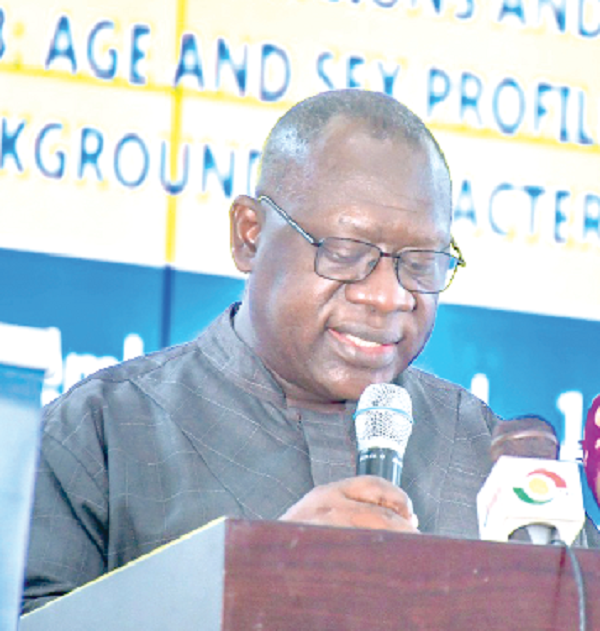
Government commends GSS for successful 2021 census
The government has commended the Ghana Statistical Service (GSS) for the successful conduct of the 2021 Population and Housing Census (PHC).
A Deputy Minister of Local Government, Decentralisation and Rural Development, Mr O.B. Amoah, who made the commendation, said the ability of the GSS to release the census results 43 days after the end of field data collection had been highly commended by the international community as well.
He stated that the use of electronic data collection for the first time to conduct the census, undoubtedly had yielded the desired results which emphatically buttressed government’s agenda for digitalisation of the economy.
General Report
Mr Amoah was speaking at a ceremony to release the 2021 PHC General Report by the GSS in Accra last Thursday.
The 2021 PHC General Report contained disaggregated data on the main census results and features 11 volumes presenting findings from the different modules of the census questionnaires.
The General Report was released in Volumes 3A,3B and 3C.
The Volume 3A presents population size, sex, composition and population density by region, district and type of locality (urban/rural).
The Volume 3B presents statistics on age and sex profile by region , and type of locality while the Volume 3C presents background (socio-demographic) characteristics on the population by region, and type of locality.
Mr Amoah ,who chaired the launch of the reports, stated that the government recognised the important role data played in the development policies and setting agenda of the country, especially for implementing sound economic growth and development to improve the lives of the population.
“Indeed, data from the 2021 PHC will enable us to measure the social and economic status of our nation, and to receive the invaluable inputs necessary for charting the road maps for achieving the targets and indicators envisioned in our national development agenda,” he stated.
Mr Amoah said his sector ministry would continue to collaborate with the GSS to ensure effective utilisation of the census data to trigger the needed development at both the local and national levels of the country.
Key takeaways
Government Statistician, Professor Samuel Kobina Annim, who launched the report, said the reports presented important disaggregated data for research, policy and planning.
He said the disaggregated data, such as presented in the General Report, were critical to identifying vulnerable populations in order to ensure that no one was left behind in the development process.
He said the data revealed significant high incidence of unregistered marriages, a population growth rate in urban areas that required multi-sectoral effort to improve living conditions of people in both rural and urban areas while there was a considerable decline in household sizes such as welfare, housing, environment among others.
